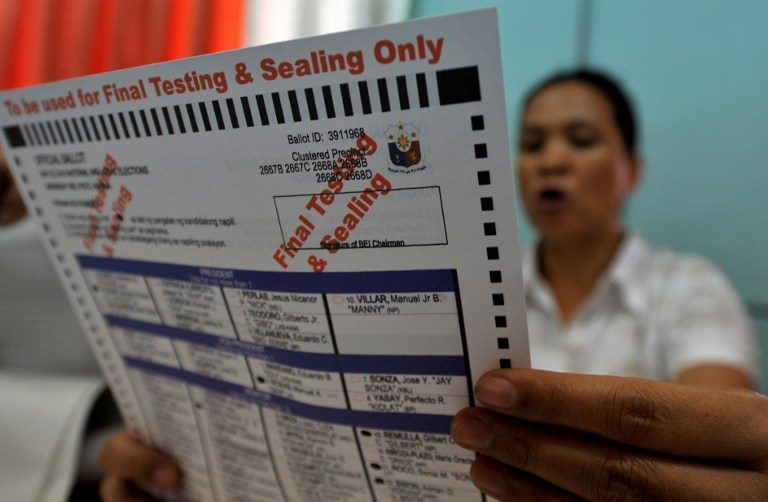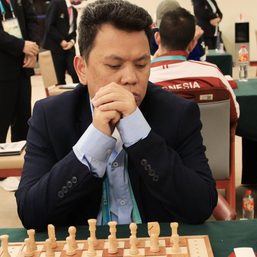SUMMARY
This is AI generated summarization, which may have errors. For context, always refer to the full article.

MANILA, Philippines – The House of Representatives adopted on Tuesday, January 26, the Senate version of a bill that releases public school teachers from rendering compulsory duty during elections.
The measure will be submitted to the President’s desk for signature, but the Commission on Elections (Comelec) will be consulted whether the new law can be implemented in time for the May 2016 elections.
Senate Bill 2178 amended House Bill 5412. Under the approved version of the bill, teachers would be allowed to defer from their duties as members of the board of election inspectors (BEI) and other election service panels.
In case there would be a lack of election officers, the Comelec may appoint the following, in the order of preference:
- Private school teachers
- National government employees (excluding military officers)
- Members of Comelec-accredited citizens’ arms
- Any voter with no political affiliations
Personnel from the national police will be considered the final option if no other qualified voter volunteers.
High-risk duty
Public school teachers have faced high risk for serving as election officers – being the target of intimidation by political camps, and clocking in countless hours until votes are canvassed.
Felixita Estoesta from Valenzuela, a teacher for 25 years, said she had despised the election season.
“During election time, there are a lot of death threats,” Estoesta said in Filipino.
“We are being harassed in various ways. They humiliate us by accusing us of manipulating the results,” she continued in a phone interview with Rappler.
Painfully, she also recalled how they fear for their lives guarding ballot boxes: “Nakakanerbiyos.” (Nerve-wracking.)
Non-compulsory election service
Teachers would soon be relieved of these sorts of harassment, once President Benigno Aquino III signs into law the “Election Service Reform Act” (ESRA).
Under ESRA, public school teachers’ involvement in elections will be voluntary.
Election volunteers will be entitled with increased honorarium and travel allowance:
- BEI chairperson – P6,000, from the current P3,000
- Supervisor from the Department of Education – P4,000, from P3,000
- Support staff – P2,000, from P1,5000
On top of the honorarium, election officers will also be given a travel allowance of P1,000, double the P500 rate they got in the 2013 elections.
‘Historic victory’
For ACT Teachers Representative Antonio Tinio, the ESRA’s passage is a “historic victory” for government-employed teachers.
In a news briefing on Wednesday, January 27, the lawmaker dedicated the bill’s success to two teachers who sacrificed their lives while serving in the elections.
“Nais kong gunitain din sa pagkakapasa ng batas na ito sina Filomena Tatlong Hari, [at] Nellie Banaag,” Tinio emotionally said. (With the passage of this measure, I want to commemorate Filomena Tatlong Hari and Nellie Banaag.)
In 1995, Tatlong Hari was killed in a ballot-switching incident in Mabini, Batangas. Banaag died when her school in Taysan, Batangas, was burned down by armed men during the 2007 midterm elections.
Tinio urged the Palace to expedite the approval of the measure.
Upon passage, ESRA will require Comelec, within 30 days after its effectivity, to determine if there is enough time to implement the law in the 2016 elections or defer it until the next polls. – Rappler.com
Add a comment
How does this make you feel?





There are no comments yet. Add your comment to start the conversation.